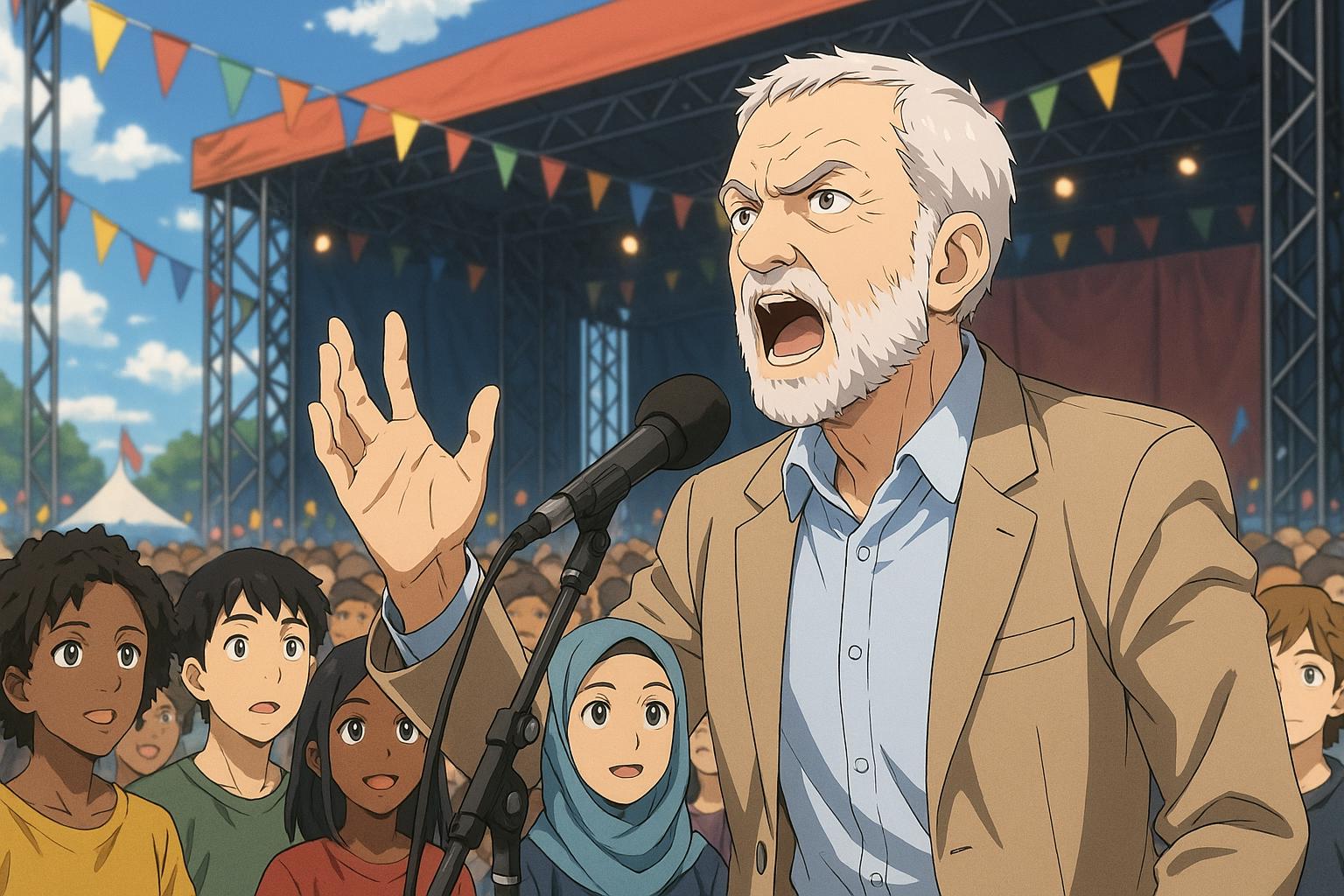Jeremy Corbyn's recent criticisms of Sir Keir Starmer’s immigration rhetoric at the Wide Awake Festival underscore a critical divide within the Labour Party, emphasizing a need for urgent reevaluation of the current government’s stances. Starmer’s use of the phrase “island of strangers” during a major speech on immigration policy reflects a worrying trend towards divisive language that betrays the values of unity and integration. While Corbyn attempts to frame diversity as the nation’s strength, it is the very approach of this new government that threatens to fracture the UK’s social fabric.
Rather than fostering a conversation about inclusive policies, Starmer’s focus on tightening immigration controls—such as increasingly stringent language requirements and elongated citizenship processes—opens the door to further alienation and division within our communities. These moves not only play to the fears of a sector grappling with labour shortages but risk solidifying a brand of politics that prioritizes exclusion over the communal benefits of a diverse society.
While some within Labour, like MP Sarah Owen and London Mayor Sadiq Khan, have recognized the dangers of this rhetoric, they remain ensnared in a party that is moving dangerously close to echoing outdated and harmful narratives about immigration. Home Secretary Yvette Cooper’s defense of Starmer, claiming a balance between fair immigration and diversity, does little to assuage concerns among those who see this as a retreat from compassionate governance.
Corbyn’s focus extended beyond immigration, addressing the UK’s problematic arms sales to Israel, which he argues implicate Britain in escalating global conflicts. Calling for greater public engagement in anti-war movements, he challenged the government’s moral compass, noting Britain’s role in supplying military equipment used in devastating actions against civilian populations in Gaza. This stance aligns with a growing public sentiment fed up with government complicity in international crises—sentiment that is markedly absent in current political discussions.
With rising calls from figures like Zarah Sultana for a complete embargo on arms sales to Israel—especially given that a significant majority of the British public supports such measures—the Labour government appears increasingly out of step with the electorate. Corbyn’s assertions for reassessment of the UK’s military involvement highlight a pressing need for change in foreign policy that prioritizes ethical standards over political alliances.
As Corbyn’s critiques resonate with citizens disillusioned by the government's trajectory, the backdrop of the Wide Awake Festival illustrates the mounting tensions between community rights and cultural events, reflecting the broader upheaval within UK society. Legal challenges against the council’s decisions regarding festival permissions echo a growing discontent with how government actions impact local communities.
Amidst the shifting political landscape, the need for inclusive and responsible governance has never been more critical. The current Labour government must recognize that uniting rather than dividing on key issues such as immigration and foreign policy is essential for fostering a cohesive and inclusive national identity. As the UK navigates its multicultural future, it is imperative that leaders abandon rhetoric that risks splintering society further.
Source: Noah Wire Services
